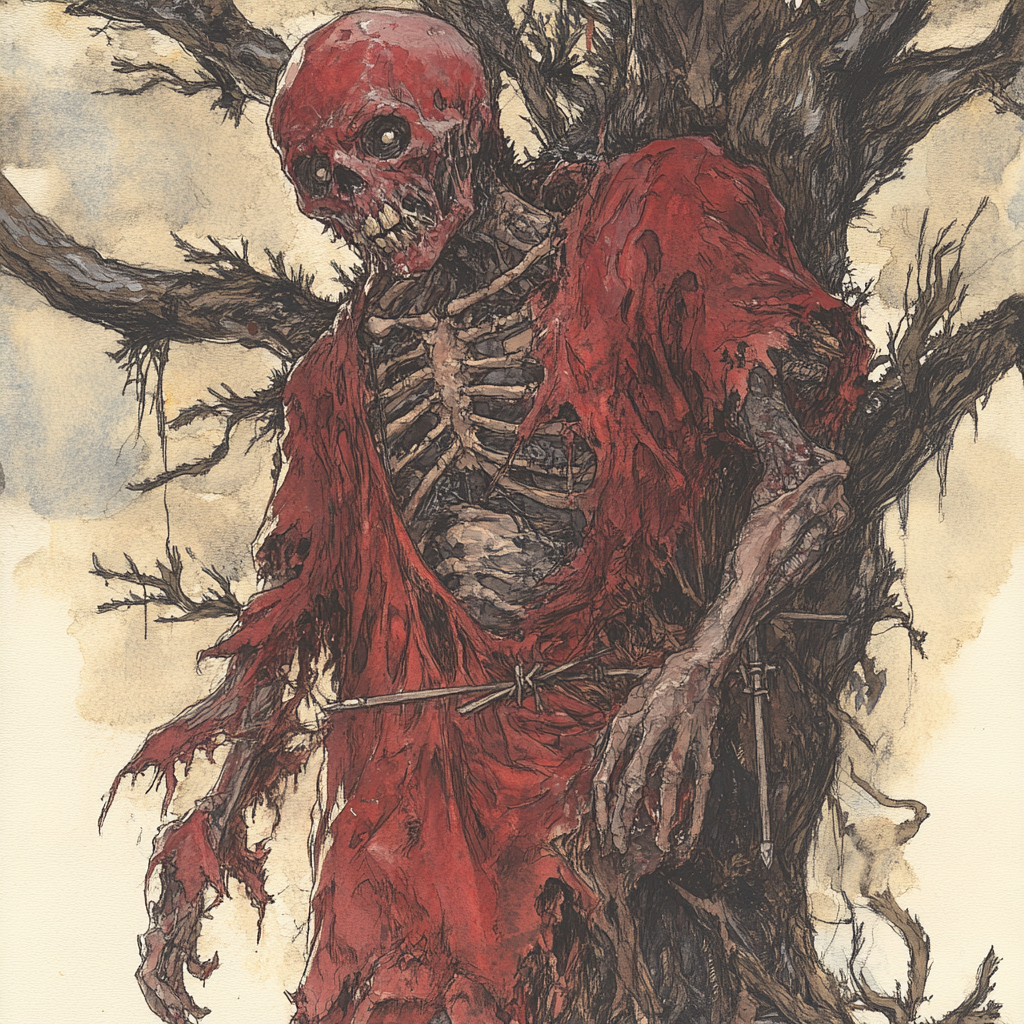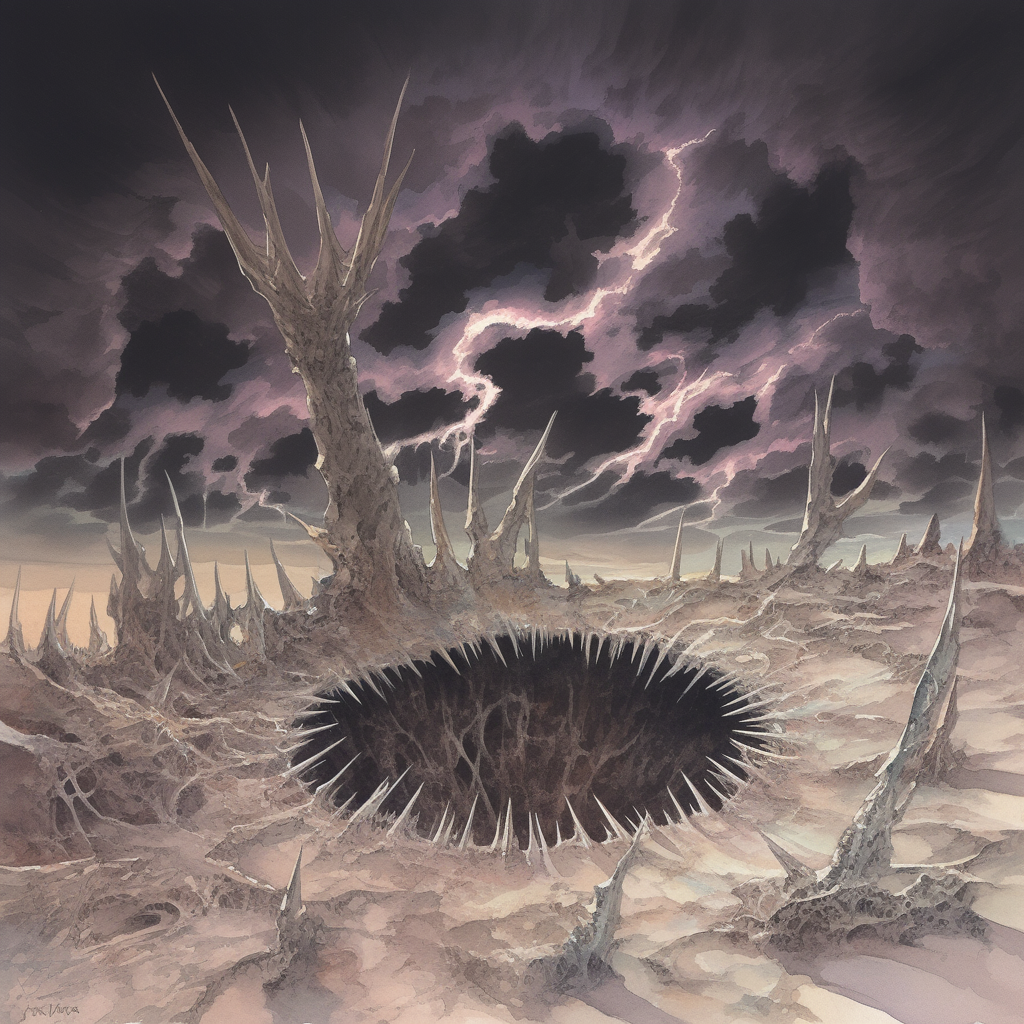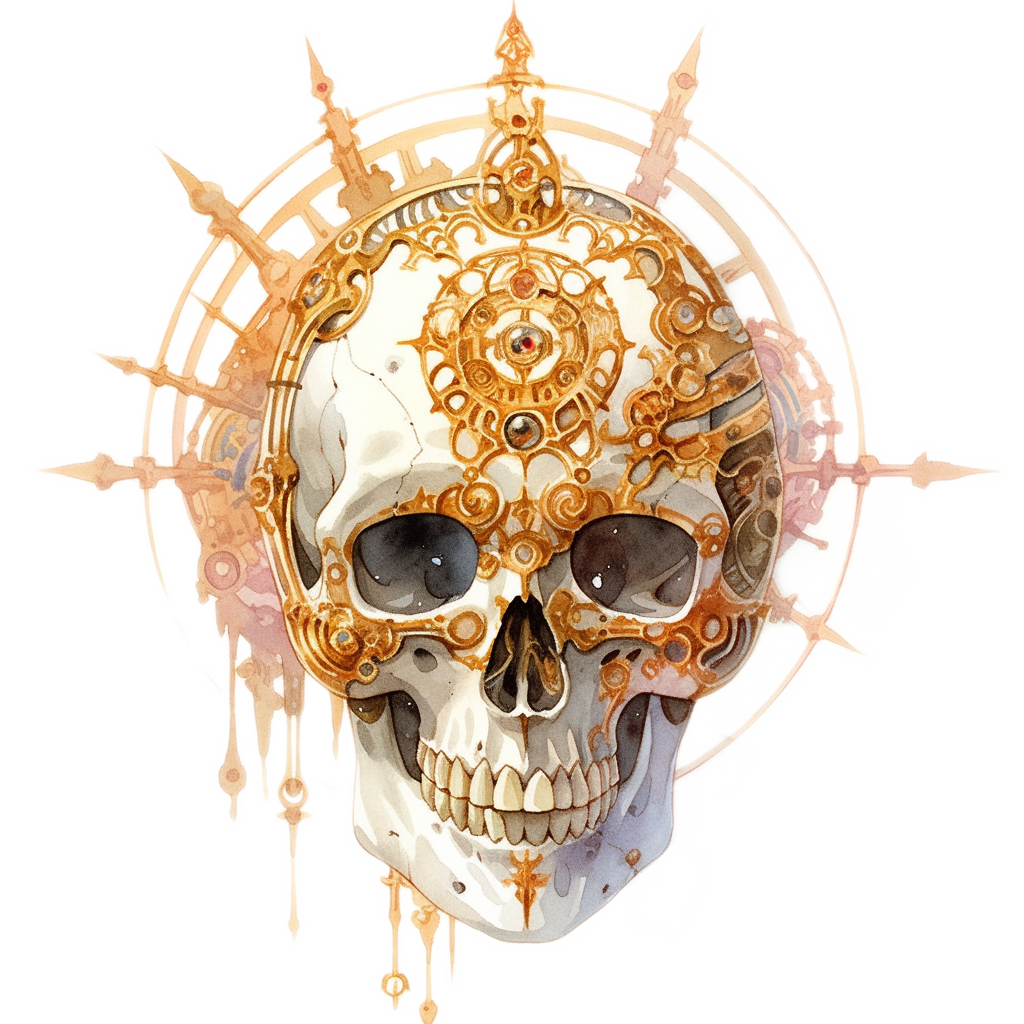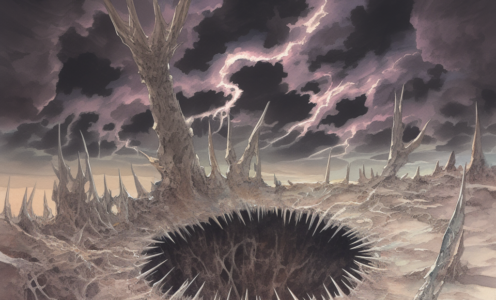The Lacerating Maw
Location: Abyss / Layer 8—Skindjur
Deep within the crystalline wastes of Skindjur lies a vast, circular chasm known as the Lacerating Maw. The pit abruptly descends into darkness, its walls lined with razor-sharp obsidian blades that glint ominously in the dim light. At various levels, flayed bodies hang suspended from hooks, their skin regrown only to be torn away again in an endless cycle of agony. These are the unfortunate sods who dared to challenge Volisupula’s authority.
At the bottom of the pit there is a single pine tree, ancient beyond years, yet somehow still alive. Nailed to the tree is an emaciated flayed corpse, also somehow clinging on to life, or perhaps more accurately, denied the dignity of death. Eternally this figure reaches out for a skin hanging just out of reach. This poor sod is called Marsyas, and his story is a shocking one.
The Myth of Marsyas

The Maw was not created by the Abyssal lord of Skindjur, oh no. Its origin is far more unexpected than that. Here’s a clue: The tanar’ri chuckle and call this place Apoll’kza’k—Apollo’s Dirty Secret. Here’s the legend:
A very long time ago, the Greek power Athena invented a musical instrument called the aulos, a kind of flute with two barrels. Right beautiful it sounded, and Athena mastered it easily. However, one day she caught a glimpse of her reflection when she played, and realised how her cheeks puffed out when she blew into it, and how ridiculous she looked. Aghast, she threw the instrument away, cursing it and whoever would play it to a horrible death.
The discarded aulos was found on Mount Olympus by a satyr cutter called Marsyas, who quickly became an expert. The Greek power Apollo learned of this, and came to punish the musician, who instead suggested he and Apollo should have a competition to see who could play the best music. It was to be judged by nymphs. Marsyas went first, and his aulos playing was so good that all who listened became carried away by a dancing frenzy. Next was Apollo’s turn. He played such beautiful music on his lute that everyone was moved to tears.
The nymphs declared the contest a draw—but then Apollo began to sing. Marsyas protested this was unfair, but Apollo rebutted that since Marsyas was blowing into the aulos then this was also using his breath. The nymphs sided with Apollo—probably to save their own skins as much as anything—and he was declared the winner.
Now, the terms of the contest were that the winner could do anything he liked to the other. Apollo was already cross at Marsyas ‘stealing’ the aulos of Athena, furious at nearly having been beaten, and incandescent at the hubris shown in challenging him in the first place. So of course, Apollo chose as his prize the skin of Marsyas, and flayed the poor berk alive, then nailed him and his skin to a tree.
Now this shocking act of cruelty did not go unnoticed. After Apollo left the scene, the very fabric of Mount Olympus quaked, and the tree and its victim were ripped through a rift in the Outer Planes, as a cosmic realignment took place. The tree eventually settled in Skindjur, sinking into the ground to the bottom of a great pit. The Abyss did the rest…
Source: Jon Winter-Holt. Inspired by the Greek myth of Marsyas, one of the many horrible things done by the supposedly ‘good’ power Apollo.


